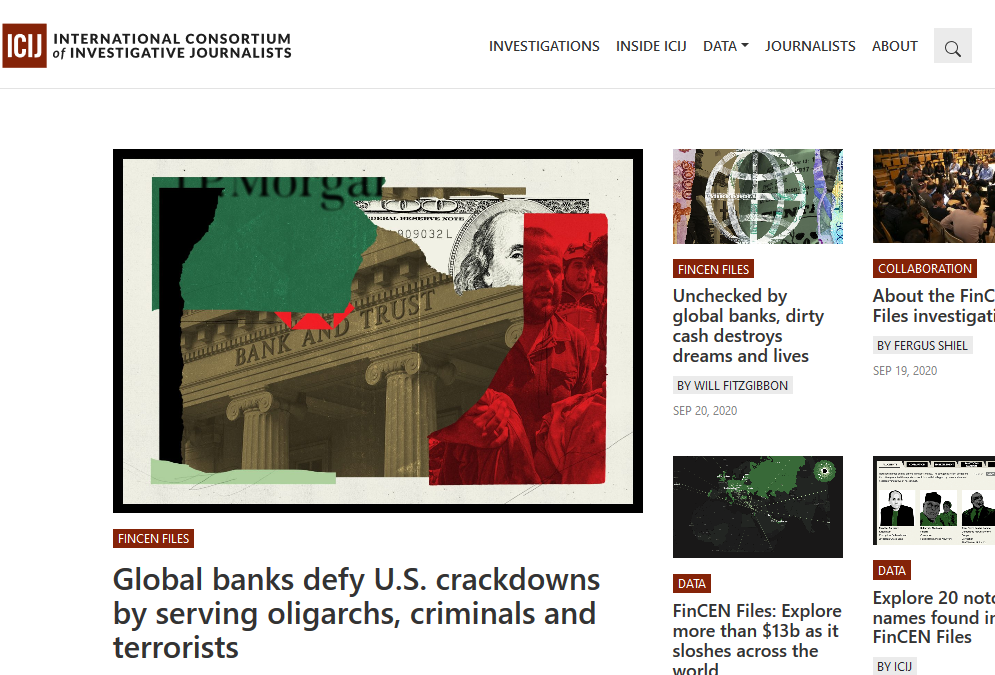Three Professors at the Centre for the Study of Corruption have collaborated with a group of eighteen professors of governance, corruption and public integrity from across the UK, to publish a letter in the Financial Times. CSC Professor of Anti-Corruption Practice Robert Barrington looks at their concerns.
Why do a group of professors get together to write a letter to the FT? It’s simple: we can discern a very clear decline in UK standards and adherence to the Nolan Principles, illustrated by the Prime Minister’s failure to follow the Ministerial Code, the Covid-19 procurement ‘chumocracy’ and multiple other examples.
The list of run-ins with the Nolan Principles and Ministerial Code over the past year is too long to put in full: legislating to break international law in ‘limited and specific ways’; the resignation of the Prime Minister’s adviser on Ministerial Standards over the Priti Patel bullying; multiple sleaze allegations relating to Robert Jenrick; the threats to the judiciary, the media – notably the BBC – and of a ‘hard rain’ falling on the independent civil service; the political capture of the notionally objective public appointments process; and much, much more.
Many of these cases and government attitudes have precedents. What is new is the number of cases and the apparent lack of concern by the government and individuals over what would formerly have been scandals or resignation offences
The eighteen professors who have signed the letter, all experts at major UK universities, are sounding the alarm bell for the UK – a decline in governance standards results in negative impacts for the economy, for national security, for democracy and for a fair society – levelling down not levelling up. And it does not stop there. The damage extends to the UK’s international reputation, and therefore its influence in the wider world.
Here is the letter in full:
Letter: It’s time the UK recommits to the Nolan rules
From Professor Elizabeth David-Barrett and othersFinancial Times 08/12/2020
As a group of scholars who specialise in the areas of governance, public sector integrity and corruption, we are writing ahead of tomorrow’s UN International Anti-Corruption Day to express our concern at the apparent reluctance of the current UK government to uphold the Nolan Principles, the seven principles of public life established in 1995: selflessness, integrity, objectivity, accountability, openness, honesty and leadership.
We have studied this subject throughout the world, and what is happening in the UK today has alarming similarities with what we have witnessed elsewhere.
The pattern of ignoring standards of openness, attacking key accountability institutions and subverting governance norms is often the forerunner to a rapid rise of corruption and the self-enrichment of those who hold power.
The UK is by no means immune to this, especially if formal and informal checks and balances in the system, such as the independence of the judiciary and civil service, are compromised or undermined.
Studies elsewhere have shown that diminishing governance standards result in negative impacts for the economy, for national security, for democracy and for a fair society. Rather than “levelling up”, evidence tells us that it leads to “levelling down” with consequences that can span generations.
The chair of the committee on standards in public life recently noted that public standards make the UK a more attractive commercial environment, yet the rating agency Moody’s has cited “the weakening in institutions and governance” as a factor in its recent downgrade of the UK.
With multiple reports of potential conflicts of interest and unaddressed breaches of the ministerial code (Report, November 21), we too feel it is important to sound a warning bell for the UK.
Professor Elizabeth David-Barrett Professor of Governance & Integrity, Director of the Centre for the Study of Corruption, University of Sussex Professor
Paul Heywood Sir Francis Hill Professor of European Politics, School of Politics and International Relations, University of Nottingham
Professor Mushtaq Khan Professor of Economics, Department of Economics, School of African and Oriental Studies
Professor Heather Marquette Professor of Development Politics, International Development Department, University of Birmingham
Professor Jason Sharman Sir Patrick Sheehy Professor of International Relations, Department of Politics and International Studies, University of Cambridge
Professor Robert Barrington Professor of Anti-Corruption Practice, Centre for the Study of Corruption, University of Sussex
Professor Martin Bull Professor of Politics, School of Arts & Media, University of Salford
Professor Nic Cheeseman Professor of Democracy, International Development Department, University of Birmingham
Professor Amrita Dhillon Professor of Political Economy, Department of Political Economy, Kings College London
Professor John Heathershaw College of Social Sciences & International Studies, University of Exeter
Professor Sam Hickey Professor of Politics & Development, Global Development Institute, University of Manchester
Professor Dan Hough, Professor of Politics, School of Law, Politics & Sociology, University of Sussex
Professor Alena Ledeneva Professor of Politics & Society, School of Slavonic & Eastern European Studies, University College London
Professor Nicholas Lord Professor of Criminology, Centre for Criminology & Criminal Justice, University of Manchester
Professor Jan-Hinrik Meyer-Sahling Professor of Political Science, School of Politics & International Relations, University of Nottingham
Professor Mick Moore Professorial Fellow, Institute of Development Studies
Professor Christian Schuster Professor of Public Management, Department of Political Science, University College London
Professor Dominik Zaum Pro-Vice Chancellor (Research & Innovation) and Professor of Governance, Conflict & Security, Department of Politics & International Relations, University of Reading









Recent Comments